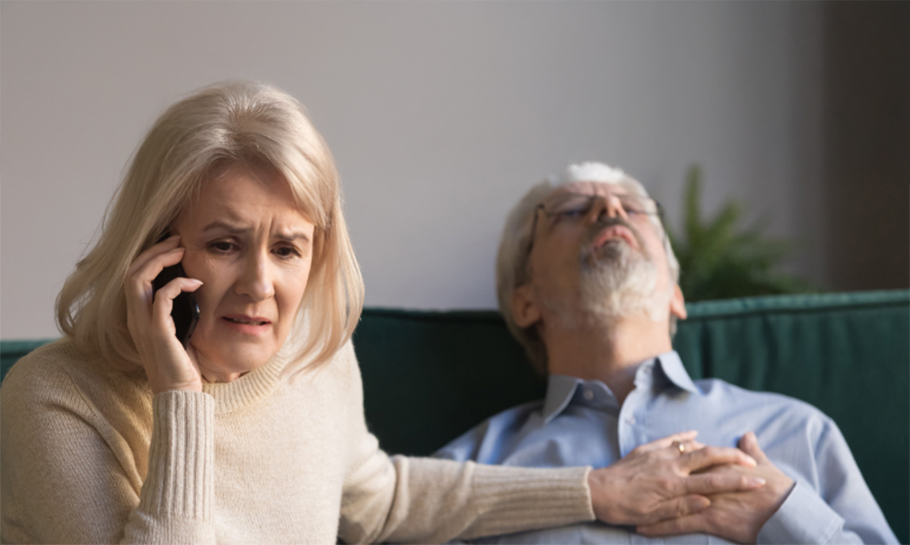Heart Attacks: When to call 911

About every 40 seconds, someone has a heart attack in the United States.
A heart attack happens when the blood flowing to the heart is blocked, often by a blood clot. Warning signs of a heart attack can be different for each person and aren’t always severe. If you or a loved one experience one or more of these symptoms, call 911 immediately!
- Chest pain, heaviness, tightness or pressure
- Feels like an “elephant sitting on my chest”
- Pain radiating to the neck, shoulder, arm or back
- Shortness of breath
- Feels like “bad indigestion”
- Nausea
- Cold sweats
- Dizziness, light-headedness
- “Just don’t feel well” or “not quite right”
When a heart attack strikes, it’s a race against time. It’s imperative to receive treatment within the first 90 minutes of a heart attack to prevent permanent damage to your heart.
That treatment starts with a call to 911 right away, even if you’re unsure of the symptoms. Emergency medical services (EMS) can start treatment as soon as they arrive and continue that treatment on the way to the hospital.
The elaborate SIH STAT Heart Program was created in collaboration with Prairie Cardiovascular. Ten regional hospitals and local EMS agencies work closely together to treat heart attacks within the 90-minute window. Together they bring treatment directly to the patient as soon as possible.
Make sure you know the symptoms of a heart attack and call 911 immediately if you experience them. With quick action, heart attacks can be treated and you can continue living a full life.